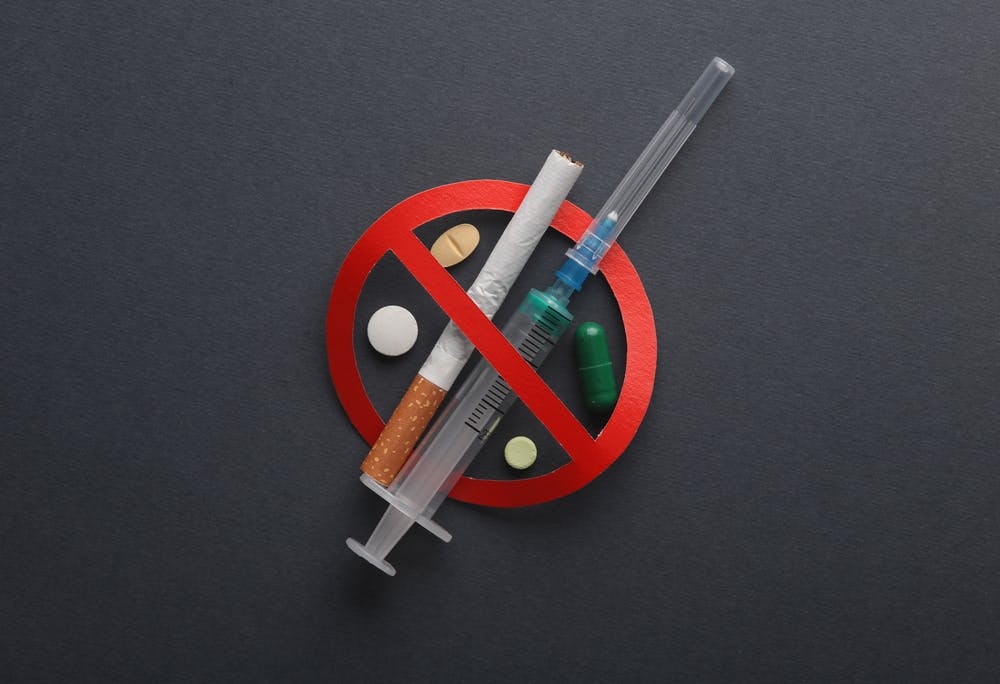This is a complex issue that entails a deep understanding of both the legal and medical aspects of addiction. Understanding addiction can help people make informed decisions and look for the best support.
In the medical context, addiction is often considered a brain disorder or a mental illness, but not necessarily a disability. However, under certain laws, addiction may be considered a disability. In this article, we walk you through the layers of this subject, looking at the relationship between addiction, the law, and disability.

What is Addiction?
Addiction is a complex condition that affects both the brain and behavior. It is often characterized by drug use despite harmful consequences.
Besides substance abuse, it can also involve compulsive behaviors, such as:
- Gambling
- Eating
- Shopping
- Prolonged use of the internet
The brain controls reward, motivation, learning, and memory – all of which are affected by addiction.
Despite the negative impact on an individual’s life, they continue to engage in these behaviors due to the irresistible urge they feel.
Understanding Disability
Disability refers to a physical or mental condition that limits a person’s movements, senses, or activities. It’s an umbrella term that includes impairments, activity limitations, and participation restrictions.
Impairments are problems in body function or alterations in body structure, such as paralysis or blindness. Activity limitations are difficulties in executing tasks or actions, such as having trouble with walking. Participation restrictions are problems with daily life situations, like working.
A disability could be present from birth or occur later during a person’s lifetime. There are various factors it can be caused by, including genetics, aging, or accidents. It can be temporary or permanent and exists in various degrees of severity.
Is Addiction a Disability?
In the United States, the Americans with Disabilities Act (ADA) recognizes addiction to drugs and alcohol as a disability, provided the person is no longer using illegal substances and is receiving addiction treatment.
Being classified as a disability under the law does not necessarily mean that addiction is seen as a disability in a medical or societal context.
Many argue that classifying addiction as a disability can lead to stigmatization and discrimination. Others argue that it can help ensure that people with addiction receive the support and accommodations they need.
Addiction and Disability Statistics
The co-occurrence of substance use disorders and mental illnesses is known as dual diagnosis. A dual diagnosis is very common.
- About 1 in 3 adults with a substance use disorder also have a mental illness.
- About 1 in 5 with a mental illness has a substance use disorder.
It’s not entirely clear how many people with physical disabilities are struggling with addiction.
Research suggests adults with disabilities have an increased risk for substance use and substance use disorders (SUD), compared with adults without disabilities. But these studies aren’t conclusive.
Addiction and the ADA (Americans with Disabilities Act)
The Americans with Disabilities Act (ADA) was passed in 1990, aiming to end discrimination against individuals with disabilities. But where does addiction fit into this? Do people with drug and alcohol dependence qualify as individuals with disabilities under the ADA?
The ADA defines a disability as a physical or mental impairment significantly restricting one or more major life activities. Individuals who are currently abusing drugs or alcohol do not legally qualify as disabled.
The ADA includes provisions for individuals who have a history of substance abuse but are not currently using it. This means if you’ve been in recovery and are no longer using drugs or alcohol, you could be protected under the ADA.
Note that the ADA only protects those who are not currently using illegal drugs and can perform the essential functions of their job.
Can Those Struggling with Addiction Get Disability Benefits?
The Social Security Administration (SSA), which oversees the disbursement of disability benefits, makes a clear distinction between addiction and disabilities caused by addiction. If you’re unable to work solely because of drug addiction or alcoholism, you probably won’t qualify for disability benefits.
However, if your substance abuse has led to a separate, qualifying disability, such as liver disease or mental illness, you could be eligible for benefits.
It’s essential to understand that the SSA will conduct a “drug addiction and alcoholism determination” to ascertain whether your disability would exist without substance abuse.
Best Treatment Options for Addiction
Addiction is a serious, life-altering condition that requires treatment.
There are numerous treatment options available, ranging from outpatient counseling and therapy to inpatient rehabilitation programs. The right treatment for you will depend on the severity of your addiction, your circumstances, and your commitment to recovery.
Options that have all proven effective in treating addiction include:
- Cognitive-behavioral therapy (CBT)
- Motivational interviewing
- 12-step programs
Medication-assisted treatment, involving the use of medications like methadone or buprenorphine, can also be an effective strategy, particularly for opioid addiction.
Getting the Right Help
Addiction being considered a disability (or not) can depend on the context. It is recognized as a disability under certain laws. Although addiction is often seen as a mental and physiological condition, ongoing medical discussions consider the intricacies about whether it is a disability.
Both addiction and disability are complex, requiring comprehensive treatment and support. If you or someone you know is struggling with addiction, contact Zinnia Health 24/7 at (855) 430-9439.
Author: Nam Tran, PharmD. Nam is a detailed and reliable pharmacist with combined 14+ years of experience in medical writing, home infusion, specialty pharmacy, and hospice.
LinkedIn: https://www.linkedin.com/in/namtranpharmd/

